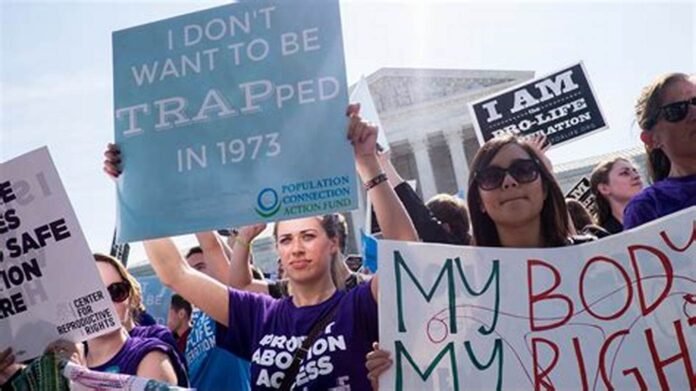The Texas Supreme Court has delivered a significant ruling by rejecting a challenge to the state’s restrictive abortion law regarding medical exceptions. This decision has far-reaching implications for reproductive rights and access to abortion services in the state. Here’s an in-depth look at the case, the arguments presented, and the potential impact of the court’s decision.
The focal point of the legal challenge was Senate Bill 8 (SB 8), a controversial Texas law that prohibits most abortions after six weeks of pregnancy, effectively banning the procedure before many individuals are even aware they are pregnant. The law is unique in that it empowers private citizens to enforce it through civil lawsuits against anyone who aids or abets an abortion after the designated gestational age.
The challenge before the Texas Supreme Court centered on the absence of medical exceptions in SB 8. Typically, abortion laws include exemptions for cases of medical necessity, such as when the life of the pregnant person is at risk or when there are severe fetal abnormalities. However, SB 8 lacks such provisions, prompting concerns about its impact on individuals facing urgent medical situations.
In response to the legal challenge, proponents of SB 8 argued that the absence of medical exceptions did not render the law unconstitutional. They contended that the state has a legitimate interest in protecting fetal life from the moment of conception and that SB 8’s provisions were consistent with this interest. Additionally, they asserted that individuals facing medical emergencies could still seek relief through existing legal avenues, such as obtaining court injunctions or raising defenses in civil lawsuits.
Opponents of SB 8, including reproductive rights advocates and medical professionals, countered that the law posed a grave threat to the health and well-being of pregnant individuals. They argued that without medical exceptions, individuals facing life-threatening conditions or severe fetal abnormalities would be denied access to timely and essential healthcare services. Furthermore, they contended that the enforcement mechanism of SB 8, which relies on private citizens to file lawsuits, created a climate of fear and intimidation, making it even more challenging for individuals to access abortion care.
The Texas Supreme Court’s decision to reject the challenge to SB 8’s lack of medical exceptions comes amidst a broader national debate over reproductive rights and access to abortion. With the recent confirmation of a conservative majority on the U.S. Supreme Court, legal challenges to abortion restrictions at the state level have taken on added significance, as many anticipate that the issue may ultimately be revisited at the federal level.
The implications of the Texas Supreme Court’s ruling are profound. By upholding SB 8’s provisions without medical exceptions, the court has effectively sanctioned a law that severely restricts access to abortion services in Texas. This decision has immediate consequences for pregnant individuals in the state who require abortions for medical reasons, as well as for healthcare providers who may face legal jeopardy for providing essential medical care.
Furthermore, the ruling sets a troubling precedent for other states considering similar abortion restrictions. If left unchallenged, laws like SB 8 could embolden anti-abortion activists to push for even more extreme measures, further eroding reproductive rights and access to healthcare services for marginalized communities.
In response to the Texas Supreme Court’s decision, reproductive rights organizations and advocacy groups have vowed to continue fighting for abortion rights and access to healthcare. They have called on lawmakers to enact legislation that protects and expands reproductive rights, including the establishment of comprehensive reproductive health services and the removal of barriers to abortion care.
As the legal and political battles over abortion rights continue to unfold, it is essential to center the voices and experiences of those most affected by these policies: pregnant individuals seeking medical care. Access to safe and legal abortion services is a fundamental human right, and efforts to restrict or deny this access must be met with steadfast resistance and advocacy.
In addition, the Texas Supreme Court’s rejection of the challenge to SB 8’s lack of medical exceptions represents a significant setback for reproductive rights and access to abortion in Texas. The decision underscores the urgent need for continued advocacy and activism to protect and expand reproductive rights for all individuals.

